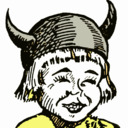Post written by Irene Koreski, Berry International Jazz Collections Fellow
Explore the digital collection featuring this oral history interview
Alice Coltrane is often only known to many as the wife of the incredibly influential jazz saxophonist, John Coltrane, but her own career shows a substantial impact on spiritualism in jazz. Alice Coltrane Turiyasangitananda was an American jazz pianist, organist, harpist, singer and composer along with being a loving mother to her four children. Alice grew up in Detroit, Michigan to a very large family of six children and took on music early in her childhood, but it wasn’t until the early ’60s when she began to play in the jazz field professionally. Alice played with her own trio and worked with many other notable artists while she lived in Detroit, which is how she met her husband, John Coltrane. Alice had replaced McCoy Tyner in the John Coltrane Quartet not soon after they had met and continued to perform with them until John’s untimely death in 1967.
Alice Coltrane had already been a large proponent of religion and its influence in music, and it seemed that John’s death only amplified these ideas for her when she decided to become a solo recording artist. She spent much of her time in isolation - praying, fasting, meditating - to seek a spiritual truth. It was during this time that Alice met her guru, traveled to India, and dedicated herself to God. Alice and her children - Michelle, John Jr., Ravi, and Oranyan - moved from their home of New York to Los Angeles and Alice opened her own spiritual retreat called The Vedantic Center in 1975 until it was relocated to the Santa Monica Mountains of Agoura, California. Alice was recorded on 25 albums, several of which featured spiritual music that Alice had composed herself and she wrote many books on the subject of her religion.
In 1981, Leonard Feather traveled to the home of Alice Coltrane in LA where they discussed several topics, of course focused on, but not limited to her music. Feather was a widely known music journalist that interviewed dozens of musicians throughout his lifetime, largely in part due to his Blindfold Test recordings. In these recordings, Leonard Feather would ask a musician to blindfold themselves, much as the name implies, and listen to an unknown recording of a jazz tune, after which they would discuss their thoughts on the playing and arranging of the piece. The interview with Alice Coltrane would be much more than his standard blindfold tests. Feather was a fan of Alice’s work and had previously written the liner notes for one of her albums Ptah, the El Daoud, which was released in 1970, as well as writing about her music prior.
Alice Coltrane spoke extensively in the interview with Feather about her spirituality and its impact on her musical career and her family life. Much of what she did every day to connect with a greater power, she encouraged her children to join her in doing as well, such as daily meditation and reading of the Hindu scriptures. She also talked to Leonard Feather about how she was able to connect with her late-husband, John Coltrane, through her meditation, even speaking about a conversation she had had with him through her meditative state.
This interview was recorded in 1981/82 while Alice and her sons were preparing for a concert at UCLA where they were to perform a set of her own music. Sadly, this would be one of the last times John Jr. would be recorded, because on August 9th, 1982, John Jr. would die at the age of 17 in a car accident. This would have a profound impact on the family, leading Alice further into her spiritual studies and music and particularly the middle son, Ravi, who would quit music for quite some time.
Leonard Feather had recorded one of the few, if not only, interviews existing with Alice Coltrane and all three of her sons, giving the listener a unique perspective on their family dynamic after their father’s death, touching on topics of school, music, religion, and much more. It stands as a mesmerizing insight into Alice Coltrane as well, the interview sandwiched between two significant losses; the death of her husband in 1967 and the death of her oldest son in 1982. While Alice had also been an advocate for social justice, she was never too eager to be interviewed, making it rare in itself that Leonard Feather had managed to record something so extensive with her and her sons.
Resources
“About Alice’s Ashram — Ashram Tapes,” n.d., Accessed May 1, 2024.
Alice Coltrane, Jazz Spiritualism digital collection
JM L, 2008. Poster for Alice Coltrane and Sons of John Coltrane, 1982. Photo.



